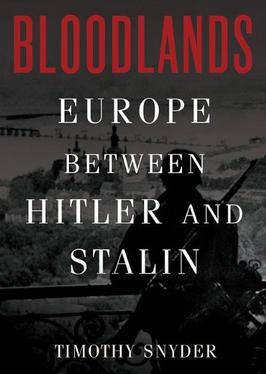Christopher Snyder may refer to:
- Christopher Snyder (historian), American historian
- Christopher Snyder (economist), American economist
- Chris Snyder, American baseball catcher
Christopher Snyder may refer to:

Economic history is the study of history using methodological tools from economics or with a special attention to economic phenomena. Research is conducted using a combination of historical methods, statistical methods and the application of economic theory to historical situations and institutions. The field can encompass a wide variety of topics, including equality, finance, technology, labour, and business. It emphasizes historicizing the economy itself, analyzing it as a dynamic entity and attempting to provide insights into the way it is structured and conceived.

The Hoover Institution is an American public policy think tank and research institution that promotes personal and economic liberty, free enterprise, and limited government. While the institution is formally a unit of Stanford University, it maintains an independent board of overseers and relies on its own income and donations. Fellowship appointments do not require the approval of Stanford tenure committees. It is widely described as a conservative institution, although its directors have contested its partisanship.
David Kennedy may refer to:

Steven David Levitt is an American economist and co-author of the best-selling book Freakonomics and its sequels. Levitt was the winner of the 2003 John Bates Clark Medal for his work in the field of crime, and is currently the William B. Ogden Distinguished Service Professor of Economics at the University of Chicago as well as the Faculty Director and Co-Founder of the Center for Radical Innovation for Social Change at the University of Chicago which incubates the Data Science for Everyone coalition. He was co-editor of the Journal of Political Economy published by the University of Chicago Press until December 2007. In 2009, Levitt co-founded TGG Group, a business and philanthropy consulting company. He was chosen as one of Time magazine's "100 People Who Shape Our World" in 2006. A 2011 survey of economics professors named Levitt their fourth favorite living economist under the age of 60, after Paul Krugman, Greg Mankiw and Daron Acemoglu.
Chris or Christopher Miller may refer to:
Chris or Christopher Morris may refer to:
Loria may refer to:
The MacArthur Fellows Program, also known as the MacArthur Fellowship and commonly but unofficially known as the "Genius Grant", is a prize awarded annually by the John D. and Catherine T. MacArthur Foundation typically to between 20 and 30 individuals, working in any field, who have shown "extraordinary originality and dedication in their creative pursuits and a marked capacity for self-direction" and are citizens or residents of the United States.

Timothy David Snyder is an American historian specializing in the history of Central and Eastern Europe, the Soviet Union, and the Holocaust. He is the Richard C. Levin Professor of History at Yale University and a permanent fellow at the Institute for Human Sciences in Vienna.
Edward Snyder may refer to:

Timothy is a masculine name. It is a version of the Greek name Τιμόθεος (Timόtheos) meaning "one who honours God", from τιμή "honour" and θεός "god". Timothy is a common name in several countries.
James Snyder may refer to:
Lipiński is a Polish surname. Notable persons with the name include:
Kuznets or Kusnets is a gender-neutral Russian surname that may refer to:

Bloodlands: Europe Between Hitler and Stalin is a 2010 book by Yale historian Timothy D. Snyder. It is about mass murders committed during World War II in territories controlled by Nazi Germany and the Soviet Union.
Snyder is an Anglicized occupational surname derived from Dutch Snijder "tailor", related to modern Dutch Snijders and Sneijder. It may also be an Anglicized spelling of the German Schneider or Swiss German Schnyder, which both carry the same meaning. A less common Anglicized spelling of the Dutch Snijder is Snider.
Chris or Christopher Reed may refer to:

Laura J. Snyder is an American historian, philosopher, and writer. She is a Fulbright Scholar, is a Life Member of Clare Hall, Cambridge, was the first Leon Levy/Alfred P. Sloan fellow at The Leon Levy Center for Biography at The Graduate Center, CUNY, and is the recipient of an NEH Public Scholars grant. She writes narrative-driven non-fiction books including, most recently, Eye of the Beholder: Johannes Vermeer, Antoni van Leeuwenhoek, and the Reinvention of Seeing, which won the Society for the History of Technology's 2016 Sally Hacker Prize. In 2019, Snyder signed a contract with A. A. Knopf to author a biography of Oliver Sacks, based on exclusive access to the Sacks archive. Snyder also writes for The Wall Street Journal. She lives in New York City, where she was a philosophy professor at St. John's University for twenty-one years.
Christopher Mark Snyder is an American economist and the Joel Z. and Susan Hyatt Professor of Economics at Dartmouth College. He is the co-author of two textbooks, Microeconomic Theory: Basic Principles and Extensions and Intermediate Microeconomics and its Application.

The Road to Unfreedom: Russia, Europe, America is a 2018 book by Timothy Snyder. In it, Snyder explores Russian attempts to influence Western democracies and the influence of philosopher Ivan Ilyin on Russian President Vladimir Putin and the Russian Federation in general.